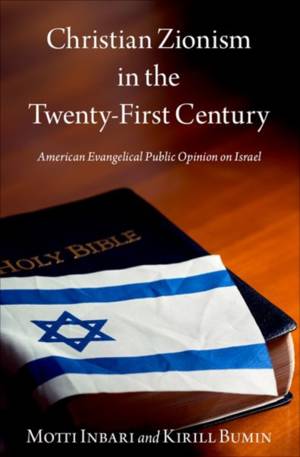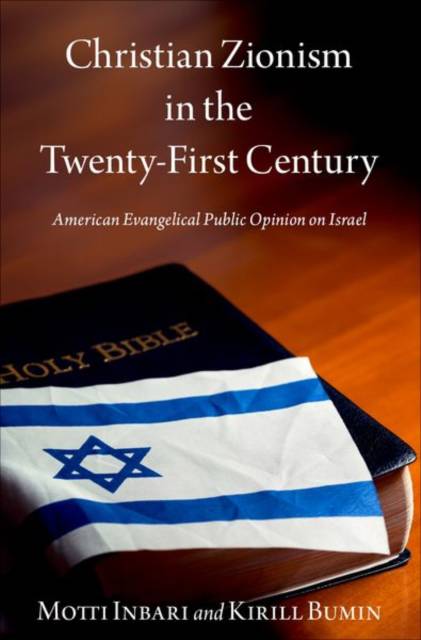
- Afhalen na 1 uur in een winkel met voorraad
- Gratis thuislevering in België vanaf € 30
- Ruim aanbod met 7 miljoen producten
- Afhalen na 1 uur in een winkel met voorraad
- Gratis thuislevering in België vanaf € 30
- Ruim aanbod met 7 miljoen producten
Zoeken
Christian Zionism in the Twenty-First Century
American Evangelical Opinion on Israel
Motti Inbari, Kirill Bumin
Hardcover | Engels
€ 48,45
+ 96 punten
Omschrijving
In Christian Zionism in the Twenty-First Century authors Motti Inbari and Kirill Bumin draw on three original surveys conducted in 2018, 2020, and 2021 to explore the religious beliefs and foreign policy attitudes of evangelical and born-again Christians in the United States. They analyze the views of ordinary churchgoers and evangelical pastors to understand the religious, social, and political factors that lead the members of this religious community to support the State of Israel in the Israeli-Palestinian conflict. Through rigorous quantitative analyses and careful textual study of ordinary evangelicals' written comments, Inbari and Bumin aim to rectify misconceptions about who evangelical and born-again Christians are, about their sympathies toward Israel, Jewish people, and Palestinians, and about the sources of their foreign policy attitudes toward the conflict. Inbari and Bumin demonstrate that a generational divide is emerging within the evangelical community, one that substantially impacts evangelicals' attitudes toward Israel. They also show that frequent church attendance and certain theological beliefs have a profound impact on the evangelicals' preference of Israel over the Palestinians. Throughout, the authors aim to add nuance to the discussion, showing that contemporary evangelical and born-again Christians' attitudes are much more diverse than many portrayals suggest.
Specificaties
Betrokkenen
- Auteur(s):
- Uitgeverij:
Inhoud
- Aantal bladzijden:
- 240
- Taal:
- Engels
Eigenschappen
- Productcode (EAN):
- 9780197649305
- Verschijningsdatum:
- 17/11/2023
- Uitvoering:
- Hardcover
- Formaat:
- Genaaid
- Afmetingen:
- 165 mm x 226 mm
- Gewicht:
- 476 g

Alleen bij Standaard Boekhandel
+ 96 punten op je klantenkaart van Standaard Boekhandel
Beoordelingen
We publiceren alleen reviews die voldoen aan de voorwaarden voor reviews. Bekijk onze voorwaarden voor reviews.











